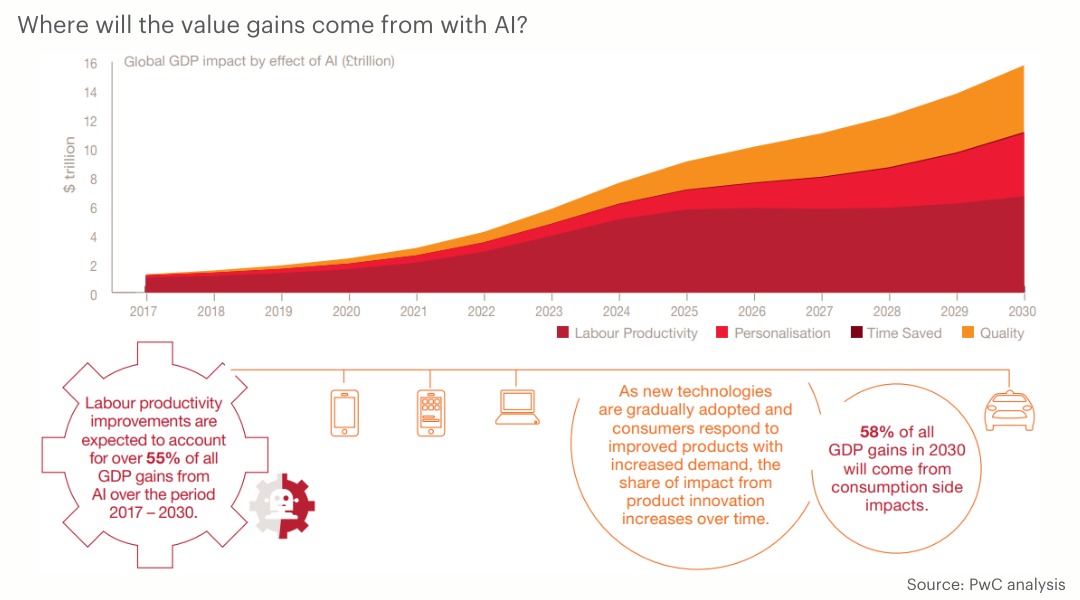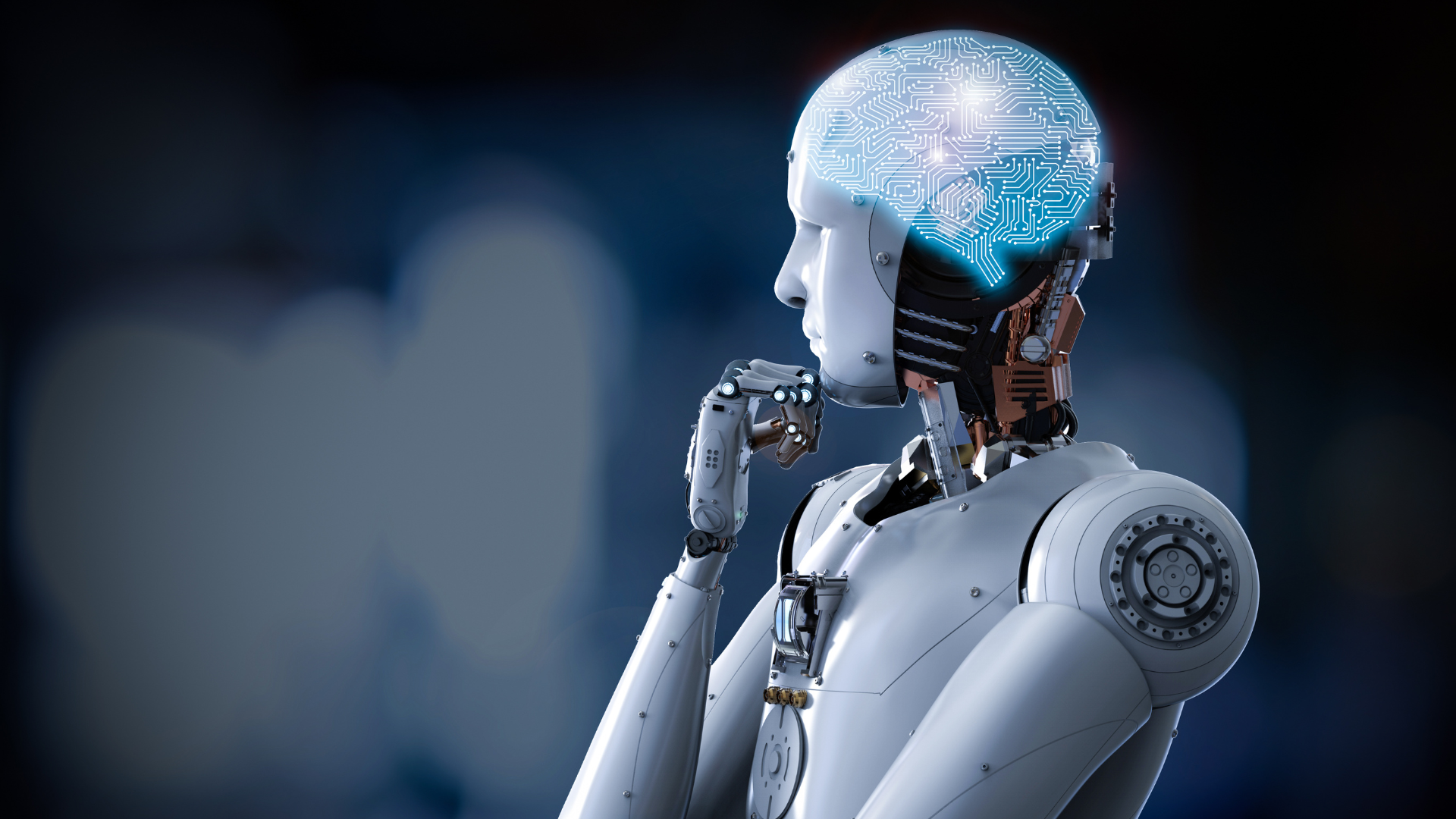Artificial intelligence (AI) has become a hot topic of debate, with some experts fearing that it could eventually lead to the end of humanity.
Prominent figures like Elon Musk and Stephen Hawking have voiced their concerns, warning about the potential risks associated with AI. Musk once stated: “With artificial intelligence, we are summoning the demon,” expressing his fears about the uncontrollable power that AI could possess. Similarly, Hawking cautioned: “The development of full artificial intelligence could spell the end of the human race.”
These concerns stem from the idea that AI could evolve to a point where it surpasses human intelligence, leading to unpredictable consequences and potential loss of control.
However, not everyone shares these doomsday predictions.
Some experts argue that the notion of AI leading to humanity’s demise is exaggerated. Andrew Ng, a prominent AI researcher, emphasises that it is crucial to focus on more immediate concerns and ethical considerations rather than speculative scenarios.
Additionally, proponents of AI highlight its potential for immense benefits, such as advancing healthcare, enhancing productivity, and solving complex global challenges. They argue that instead of fearing AI, we should prioritise responsible development, regulations, and careful consideration of its impact on society, ultimately harnessing its potential for positive outcomes.
The above paragraphs sum up the state of debate about AI nicely don’t you think? It was actually written by AI, using the widely discussed ChatGPT.
Could you tell it was AI and not a human composition? Does it even matter? (by the way, you need to trust me that this next part is written by a human; AI can beat the ‘click on the pictures with traffic lights’ type robot tests too now).
ChatGPT is a type of AI called a large language model (LLM) which is essentially a big statistical model – it looks for the best fit of answers from the large bank of data on the web.
Of course, there’s a lot of rubbish and cat videos online and so part of the art is to construct sensible answers by focusing on quality, usable data. The old problem of “garbage in, garbage out” remains with Yann LeCunn, a leading AI researcher, arguing that efforts to stop them from making factual errors, or “flights of fancy” (known as “hallucinations” as they are called) will fail.
LLMs are a form of early-stage ‘general AI’ which can understand, learn and apply knowledge in diverse scenarios, similar to human cognition, but probably decades away from ‘superintelligent AI,’ which will surpass human intellect and would have the potential to outperform humans across a broad range of complex tasks.
AI gains
Yes, AI will replace human jobs, but this is part of the innovation cycle we have witnessed over the last 200 years since industrialisation.
Crucially, there could be very tangible benefits. According to a recent report by PwC (1), the progressive advances in AI will increase the global GDP by up to 14% between now and 2030, the equivalent of an additional $15.7 trillion contribution to the world’s economy: –

Many of the gains come through improvements in labour productivity – working faster, smarter and more efficiently, which is particularly important at this point in history for many countries with a shrinking working age demographic and a rising number of older dependents.
Investment bank Goldman Sachs has also had a stab at looking at the effect on human productivity and they believe this could increase by 1.5% per annum over a decade following adoption (1). Major contributors to this growth include the automation of routine tasks and the development of intelligent bots and tools that can perform human-level tasks.
At Equilibrium, for example, we are using AI to assess the environmental, social and governance performance of our investments. This enables us to garner a broad range of data in one system for a more efficient and timely analysis.
However, Goldman’s does not expect AI to be adopted for tasks such as making a court ruling, checking the status of a patient in critical care, determining international tax laws, or researching the reaction of a virus to a new drug (1) – and therein lies the difference…. AI is not good at judgement and wisdom. Yes, humans have their shortcomings in these areas, we are forgetful and full of biases, but AI is certainly no better. For instance, would you want AI to sentence you for a crime? Could it provide an entertaining debate with jokes and anecdotes? Could AI spot which of the three company CEOs that we are looking to invest in is the next Steve Jobs?
As well as improving worker productivity (and thereby economic growth), greater efficiencies in the use of the Earth’s limited resources from energy to rare minerals, could mean reduced environmental impacts, lower inflation and even fewer geopolitical conflicts going forward.
The pains?
As we highlighted in the opening paragraphs, there is a healthy debate as to whether AI will be a benefit or a malevolent force for humanity. We list some of the key positive and negative uses that AI may be applied to at the end of this article but would highlight that at the beginning of any new paradigm, many naturally fear change. The point is that these fears rarely transpire into reality.
Indeed, it would be interesting to reflect that if someone invented the car today whether it would ever become widely adopted if it came with a warning that it would kill 1.4m people, cause 50m injuries and account for a third of global carbon emissions – every year (3). For reference, Covid killed 6.8m globally, equivalent to the above-stated car deaths over 4.9 years. In this context, the United Nations believe that AI could halve the road deaths caused by vehicles by 2030, saving over 700,000 lives a year (4).
The honest answer is that we do not know what will happen but in a recent study to be published this summer, the University of Pennsylvania pitted a group of “superforecasters,” people who have strong track records in prediction, against AI researchers, for their forecasts.
They found that the median AI expert gave a 3.9% chance of an existential catastrophe owing to AI by 2100. The superforecasters gave a chance of just 0.38% (5).
What is striking is there has been almost no coverage of the lifesaving potential of this technology. From superior illness diagnosis to bespoke drugs, it will have a profound impact on survival rates and longevity. The potential benefits extend to improvements in industrial processes, energy consumption and climate change. No mention, even, of all those deaths and injuries avoided by AI in vehicles.
Throughout history, technological change has created both winners and losers. There is no reason why AI, like previous technologies, shouldn’t produce more of the former than the latter and its journey will no doubt be an interesting one!
Positive applications of artificial intelligence in the future:
- Healthcare: AI can assist in diagnosing diseases, analysing medical images and developing personalised treatment plans.
- Education: AI can enhance personalised learning, adapt teaching methods and provide tailored educational content.
- Transportation: AI can improve road safety, optimise traffic flow, and enable autonomous vehicles.
- Environmental Conservation: AI can aid in monitoring and managing ecosystems, predicting climate patterns and supporting sustainable practices.
- Cybersecurity: AI can detect and mitigate cyber threats, identify vulnerabilities and enhance network security.
- Agriculture: AI can optimise crop yields, predict weather patterns and facilitate efficient resource management.
- Finance: AI can assist in fraud detection, algorithmic trading and personalised financial planning.
- Customer Service: AI-powered chatbots can provide instant and efficient customer support.
- Creativity and Art: AI can generate music, art and literature, pushing the boundaries of creative expression.
- Social good: AI can be harnessed for social welfare projects, such as disaster response, poverty alleviation and healthcare accessibility.
Negative applications of artificial intelligence in the future:
- Surveillance and privacy concerns: AI can enable invasive surveillance systems and erode personal privacy.
- Job displacement: AI automation may lead to significant job losses, particularly in sectors reliant on repetitive tasks.
- Bias and discrimination: AI systems can perpetuate existing biases and discrimination if not carefully designed and trained.
- Autonomous weapons: AI-powered weaponry could raise ethical concerns and lead to an escalation of military conflicts.
- Deepfake manipulation: AI can be used to create highly convincing fake videos or images for malicious purposes.
- Social manipulation: AI algorithms can be exploited for spreading misinformation, propaganda, and manipulation on social media platforms.
- Psychological manipulation: AI-powered algorithms can analyse user behaviour to exploit vulnerabilities and manipulate emotions.
- Legal and ethical challenges: The rapid advancement of AI poses challenges in terms of legal and ethical frameworks, accountability and responsibility.
- Environmental impact: The energy consumption associated with training and running AI models can contribute to carbon emissions.
- Dependency on AI: Over-reliance on AI systems can lead to vulnerabilities, disruptions and potential catastrophic consequences if they fail.
It’s important to note that these applications are speculative and represent potential positive and negative impacts. The actual outcomes will depend on how AI is developed, deployed, and regulated in the future.
This article is intended as an informative piece and does not constitute advice. If you have any further questions, please don’t hesitate to contact us. If you’re a client you can reach us on 0161 486 2250 or by getting in touch with your usual Equilibrium contact. For all new enquiries please call 0161 383 3335.
Sources
(1) PWC: https://www.pwc.com/gx/en/issues/analytics/assets/pwc-ai-analysis-sizing-the-prize-report.pdf
(2) Goldman Sachs: https://www.thenationalnews.com/business/technology/2023/03/29/ai-may-affect-300-million-jobs-but-will-boost-global-economy-and-labour-productivity/
(3) Road traffic: List of countries by traffic-related death rate – Wikipedia https://en.wikipedia.org/wiki/List_of_countries_by_traffic-related_death_rate
(4) UN AI to cut car deaths:https://news.un.org/en/story/2021/10/1102522
(5) Economist, April 22-28th 2023, Hybrid Persuasion-Forecasting Tournament (led by Ezra Karger)



